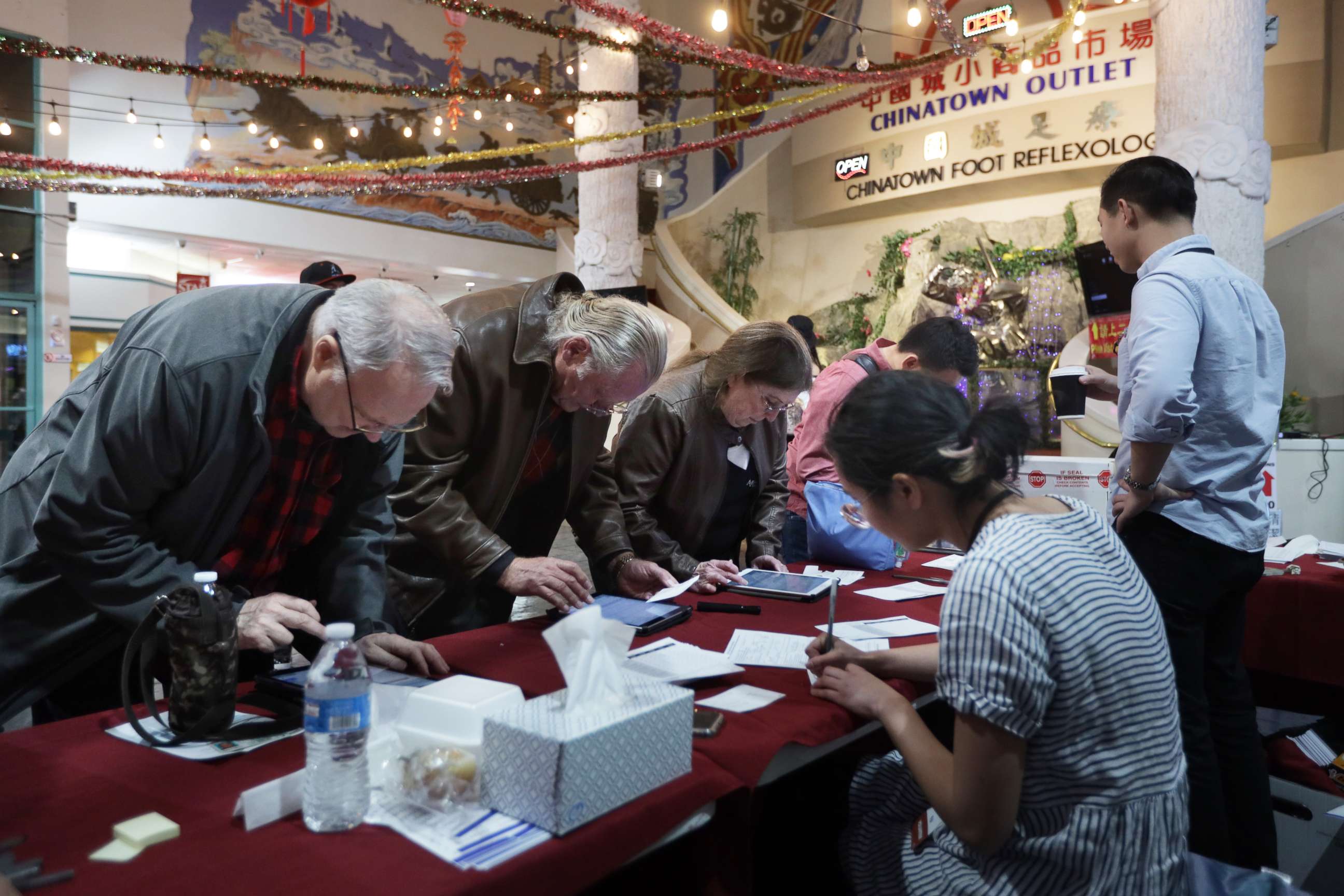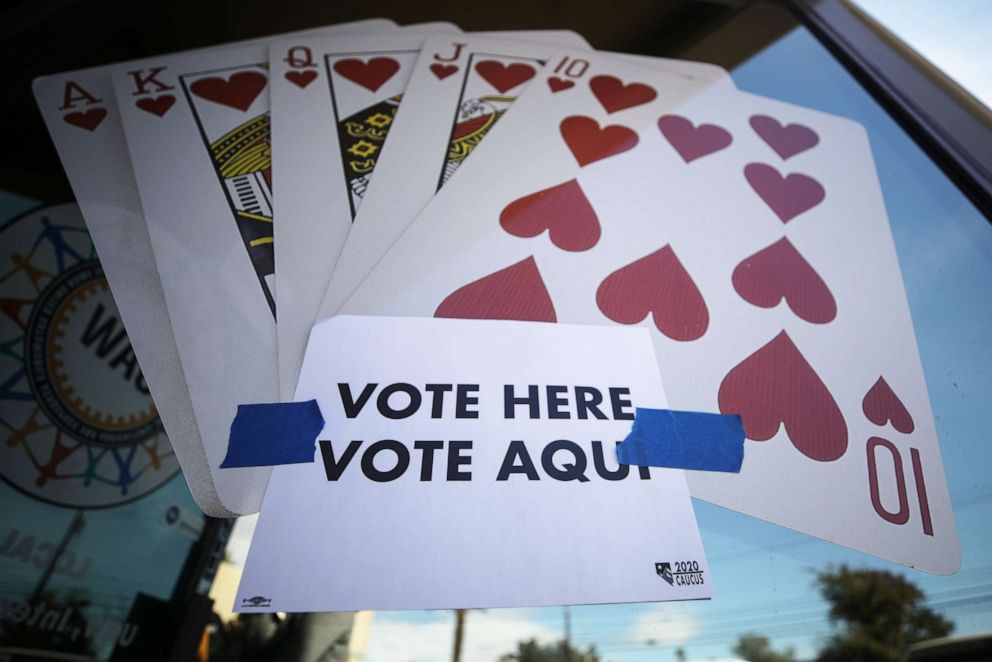Nevada's new early voting rule gives shift workers opportunity to participate
Over 70,000 voters took advantage of the new rule ahead of the Nevada caucuses.
Las Vegas may be known for its glitz, glamor and nightlife -- but what happens in Vegas is largely possible because of the work done by thousands of casino workers, housekeepers and hotel staff working around the clock.
Among them is Alicia Sosa, a cocktail waitress at a top hotel resort in Vegas, who typically works the graveyard shift. Sosa says she came to Nevada 22 years ago from Texas in hopes of providing for her family while working for six dollars an hour.
Paying for health care out of her own pocket, she picked up another job when making ends meet became more difficult.
"I never let my children see the struggle that we were facing. Never. Because it was my struggle, not [their’s]," Sosa told ABC News' Rachel Scott in an interview.
Sosa -- along with thousands of other Las Vegas shift workers -- is a member of the Culinary Workers Union, an organization that represents hundreds of thousands of Nevada’s hospitality workers. The union is also Nevada’s largest immigrant organization, and says its members come from 178 countries and speak more than 40 different languages.
Many of those members work long shifts, making individual political involvement difficult and, at times, time-consuming, which leaves them looking to the Union to drive political change.
"They're just not members -- we're family," Sosa says. "When we go strong, we go strong for everyone."
Some of the top concerns for shift workers like Sosa are economic security and health care, both of which are at the top of mind of voters this election year, when many of Vegas' shift workers are hoping to finally make their voices heard.

Nevada instituted early voting for the first time ahead of its caucuses, in hopes of allowing for greater participation from voters who otherwise may have been unable to show up.
In years past, some voters had to juggle adjusted childcare plans or earning less pay with their decision to turn out to caucus.
John Walter, a master cook who has worked in Las Vegas for more than 30 years, described the choice in dire terms.
"Do you want to vote? Or do you want to work another eight hours so you can eat," Walter said.
"It can be very difficult because if you're working all day -- and then some people have, alot, have another job, or they got to get home to their family or their kids," he added. "Some people just don't make it, so they don't vote."
Ahead of Saturday’s caucuses, more than 70,000 voters lined up at polling locations across the state over the span of four days -- Feb. 15-18. Some of those voting locations were set up along the Las Vegas strip in an effort to cater to the voters who work at those hotels and casinos.
As voting lines snaked around the block in many locations, members of the Culinary Workers Union zeroed in on a major priority for their organization -- keeping their hard-fought union health care.
Just over a week before the first in the west contest was officially set to begin, the Culinary Workers Union criticized Vermont Sen. Bernie Sanders' "Medicare for All" plan, saying that its members would prefer to keep their current private insurance plans.
The union spent years picketing for the plan that protects its 60,000 members.

"I had double knee surgery in August -- my co-pay was less than three hundred," Walter told ABC News. "I just had a shot a couple months ago for my knees -- two grand for each shot, [with a] $30 co-pay. If I didn't have that, I'd be bankrupt."
He added, "I want everybody to have health care, but to leave us alone, we fought very hard to have what we have."
With so many prospective voters belonging to the Culinary Workers Union, the organization flexes a powerful political muscle in Nevada.
But as candidates spent the final sprint to Saturday’s caucuses tailoring their messages to the most diverse group of voters yet this primary season, they did so without the Culinary Union’s endorsement.
In a statement released ahead of the caucuses, Bethany Khan, the union's director of communications and digital strategy, said the organization would not back any candidate.
"The Culinary Union and UNITE HERE, the national hospitality workers union, has declined to make an endorsement ahead of the Nevada Caucus, but remains committed to defeating Trump on Election Day," Khan said in the statement.
But for workers like Sosa, the lack of an endorsement doesn’t outweigh the impact of every vote cast.
"As I told my coworkers, even if there’s one vote, that’s one voice," Sosa said.




